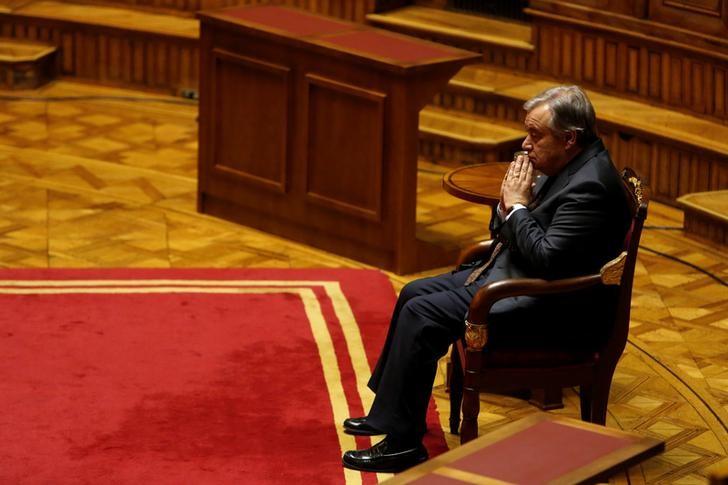President Elect Donald Trump, set to take office in three weeks, spoke with new United Nations Secretary-General Antonio Guterres for the first time on Wednesday.
According to a U.N. spokesman, the two world leaders had a “very positive discussion on U.S./U.N. relations,” despite the incoming President’s recent Twitter comments about the validity of the global organization.
“The United Nations has such great potential but right now it is just a club for people to get together, talk and have a good time. So sad!” The President Elect posted to Twitter on December 26th.
Antonio Guterres, the former Prime Minister of Portugal, has also served as the U.N. Refugee Chief, but began his five-year term as U.N. Secretary-General this past Sunday. Farhan Haq, a spokesman for the U.N. told reporters on Wednesday that Guterres is looking “forward to engaging with the president after his inauguration.”
Donald Trump’s most recent distaste for the United Nations sprang from last week’s resolution calling for an end to Israel’s settlement building in areas contested by Palestine; a resolution the Obama administration chose not to veto, prompting many to accuse the sitting president of being anti-Israel.
The incoming President was vocal in his disapproval of the move, and said that “things will be different” within the United Nations once he takes office. His conversation with the new U.N. head seemed to have gone well, however, as Guterres took to a different social media platform, Snapchat, to discuss his conversation with Donald Trump.
“President(-elect) Trump also said the U.N. has an enormous potential. That’s exactly what I feel. My job is to make sure that potential becomes a reality.”
Concerns about the Trump administration pulling funding for the U.N. has prompted feelings reminiscent of those shared by NATO leaders in the days following the presidential election. As international bodies that both rely heavily on U.S. financing and military participation, President Elect Trump has a significant amount of leverage to use when pushing for policy reform.
Members of the United Nations have also been extremely critical of Trump because of his stance on climate change, suggesting that the United States might withdraw from the Paris Accords under his leadership. The Paris Accords were signed by more than one hundred and seventy-five nations, and laid out policies that are intended to reduce pollution and curb climate change.
The UN high commissioner for human rights, Zeid Ra’ad al-Hussein, has compared Donald Trump to right-wing leaders in Europe, using the terms, “the populists, demagogues and political fantasists,” to describe the leaders he likens to the new President Elect. This came after Trump proposed barring refugees from certain nations from entering the United States for security reasons.
Currently, the United States foots the bill for twenty-two percent of the U.N.’s core budget and twenty-eight percent of its peacekeeping budget. Some U.S. Senators have called for a reduction or complete cut of funding to the organization following last week’s resolution.
Already have an account? Sign In
Two ways to continue to read this article.
Subscribe
$1.99
every 4 weeks
- Unlimited access to all articles
- Support independent journalism
- Ad-free reading experience
Subscribe Now
Recurring Monthly. Cancel Anytime.
“This gives Guterres a reason for going big on reform quickly,” a senior U.N. diplomat that wished to remain anonymous told Reuters. “He needs to make sure he is reforming the U.N. fast enough and radically enough in order to engage the incoming U.S. administration.”
Trump is certainly not the only world leader to be critical of the U.N.’s bureaucracy. Many wealthy nations have accused the organization of being extremely inefficient, while poorer nations have suggested that the world body awards more influence to nations that can offer more resources.
However, as Donald Trump prepares to take office later this month, he and the new head of the U.N. may have found common footing in their assessment of the organization. Guterres announced to U.N. staff members on Tuesday that he intends to work to eliminate the “straightjacket of bureaucracy” he believes is currently hindering the effectiveness of the global body.
Even if he doesn’t agree with Donald Trump, with the risk of losing more than a fifth of the U.N.’s operating budget, he’ll have to find a way to work with America’s controversial new president in the months to come.
Image courtesy of Reuters










COMMENTS